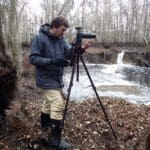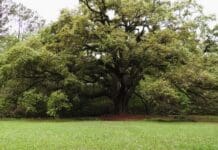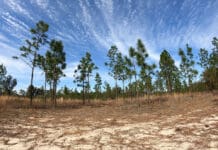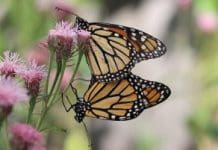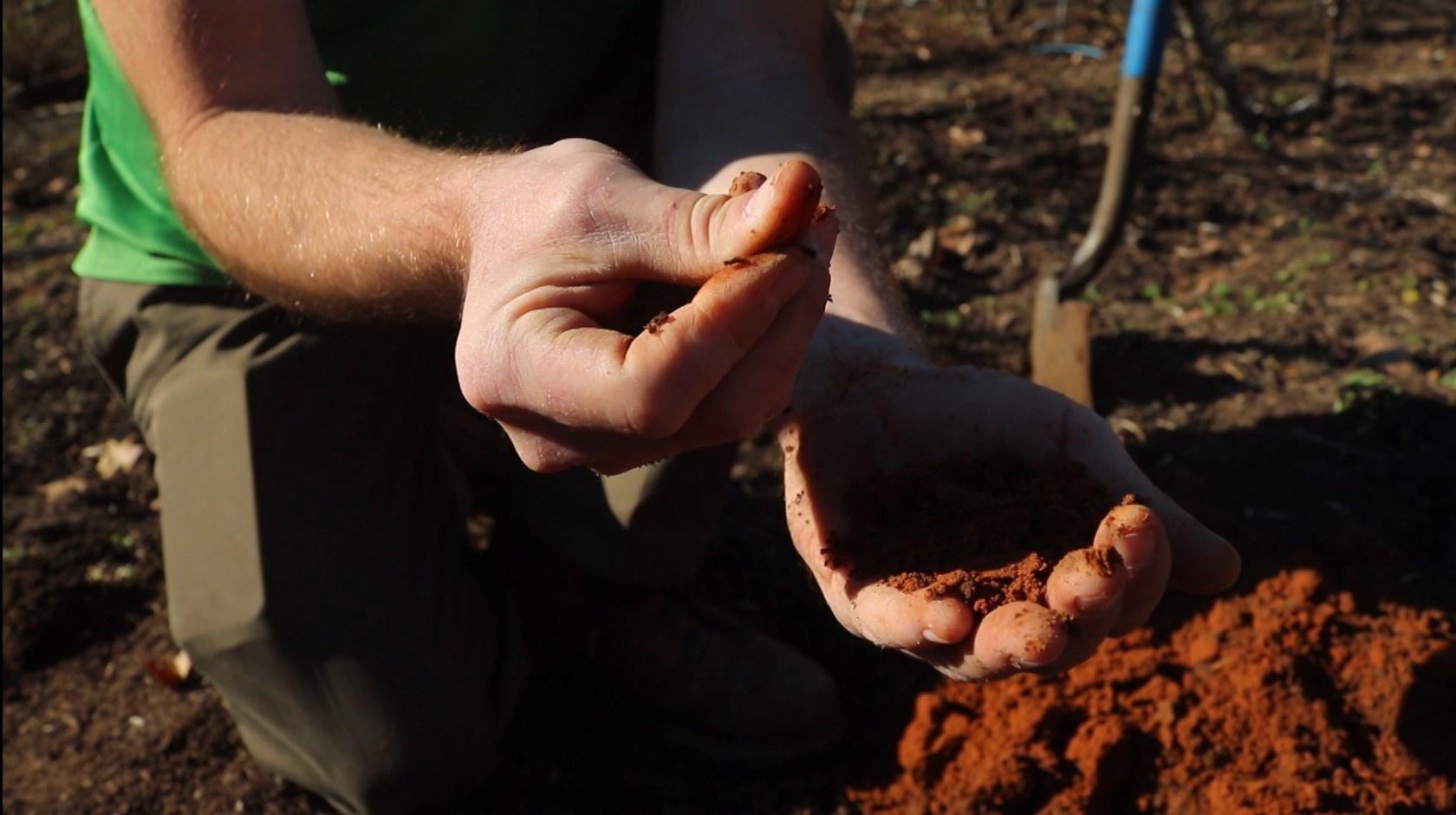

We join UF/ IFAS Leon County Extension agent Mark Tancig as he digs holes around Tallahassee. We’re looking at the native soils of Tallahassee, and how they affect plant growth in our yards. An ancient coastline divides the Red Hills (the uplands) from sandier soils that were once ocean bottom. How do air and water move through these soils and into plant roots?
I’m driving to spots around Leon County in search of native species. Sounds familiar, doesn’t it? I could begin any number of blog posts that way; I’m looking for this rare plant or that endemic bird or salamander. Not so today, however. My companion has a shovel, but the things we’re looking for are not buried in the soil- they are the soils.
Soil types have names, just like plant and animal species, and areas where they’re known to be found. Our area’s ecology is as much connected to Orangeburg, Kershaw, and Ortega as it is to wood storks, gopher tortoises, or live oaks.
“When you think of an ecosystem as a whole,” says Mark Tancig, “and this could be an ecosystem in the National Forest, or this could be the ecosystem that makes up your lawn and garden, it includes the animals, it includes the plants. But something that we don’t think about is the soil.”
Mark is the Horticulture Extension Agent at UF/ IFAS Leon County Extension. People come to him with questions about plants. Maybe their trees aren’t producing fruit, or become diseased. Is the insect on this pepper plant here to eat it, or to help it? Any number of factors affect how a shrub or a wildflower grows, but the health of a plant starts in the soil where it spreads its roots.
So we’re going to go dig some holes, and see what “species” of soil are underneath us in different parts of the county.
Rob Diaz de Villegas is a senior producer for television at WFSU Public Media, covering outdoors and ecology. After years of producing the music program OutLoud, Rob found himself in a salt marsh with a camera, and found a new professional calling as well. That project, the National Science Foundation funded "In the Grass, On the Reef," spawned the award-winning WFSU Ecology Blog. Now in its tenth year, the Ecology Blog recently wrapped its most ambitious endeavor, the EcoCitizen Project.
Rob is married with two young sons, who make a pretty fantastic adventure squad.

